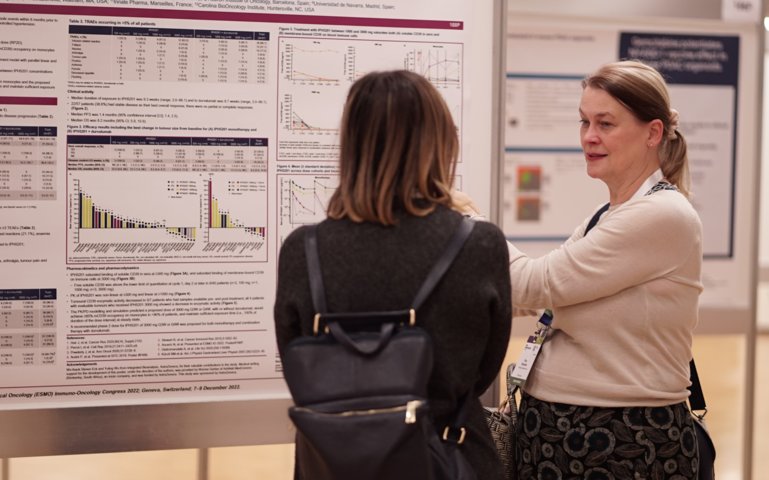
Do immune checkpoint inhibitors affect COVID-19 severity?
A joint analysis of the OnCovid and ESMO-CoCARE registries confirms the protective role of anti-SARS-CoV-2 vaccination in cancer patients treated with immunotherapy

Two studies explore new predictive biomarkers for immunotherapy in NSCLC
Different methods – multiparametric biomarker assessment and FDG-PET – show mixed accuracy and their applicability in clinical practice needs to be assessed

Neoadjuvant camrelizumab plus chemotherapy improves pathologic complete response in stage IIIA and B NSCLC
Positive results from a phase II trial adds weight to the value of immunotherapy as neoadjuvant treatment for resectable NSCLC

Positive preliminary results for combination therapy with adagrasib in KRAS G12C-mutated NSCLC
Phase III trials are planned to assess combined KRAS G12C inhibition/checkpoint inhibition as first-line therapy

Exploratory analysis of IMpower010 confirms that ctDNA is prognostic for adjuvant atezolizumab in NSCLC
However, improved outcomes are reported in PD-L1-positive patients only irrespective of post-operative and post-chemotherapy ctDNA status, calling into question its predictive value

Neoadjuvant anti-PD-L1/TGFβRII fusion protein facilitates surgery in unresectable NSCLC
Phase II study indicates that SHR-1701 alone or together with chemotherapy may be a valuable induction strategy in stage III unresectable NSCLC

Back to basics: do we need more immuno-oncology in the core curriculum?
Due to the current widespread use of immunotherapies and their increasing complexities, further immune-oncology education is needed in medical schools and beyond

Benefits of immunotherapy in hepatocellular carcinoma are confirmed in Asian subpopulations
New subpopulation analyses from three international phase III trials confirm efficacy of immune checkpoint inhibitors across geographical areas

Nivolumab plus chemotherapy does not improve PFS in EGFR-mutated NSCLC
CheckMate 722 trial fails to meet its primary endpoint in patients with cancer progressing on one or two prior lines of EGFR tyrosine-kinase inhibitors

Hepatocellular carcinoma: apatinib after transarterial chemoembolisation prolongs PFS in a Chinese population
Positive results in intermediate and advanced disease come after the failure of global trials investigating the combination of TACE with targeted agents
